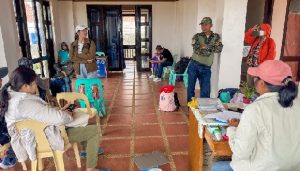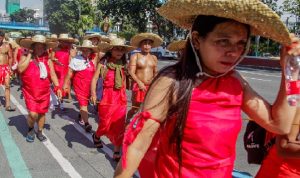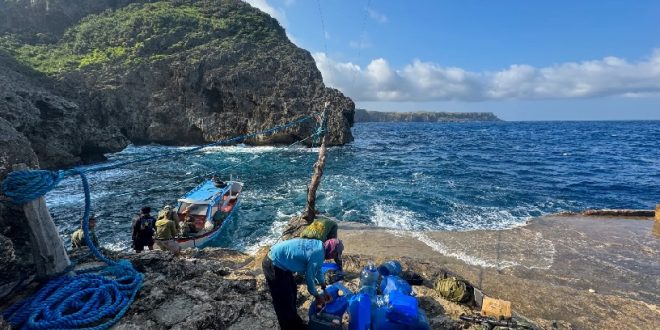11-04-2024
ITBAYAT, PHILIPPINES: Eleuterio Malupa still remembers December 7, 1941.
On the same day as the Japanese military attacked the US naval base at Pearl Harbor, it launched coordinated attacks across the Philippines, then a colony of the United States.
 On Itbayat, the tiny island of 3,100 that Malupa calls home, the Japanese military destroyed the only telecom radio. The next day, he saw two bombs drop near the municipal hall.
On Itbayat, the tiny island of 3,100 that Malupa calls home, the Japanese military destroyed the only telecom radio. The next day, he saw two bombs drop near the municipal hall.
“My uncle said, ‘don’t go near the window. They might shoot you’,” Malupa, who is now in his 90s, recalled.
The bombs missed their target but they signaled the start of a four-year period of occupation by a Japanese company that dug a network of mountain tunnels to hide troops and store supplies, many fled in fear.
“They did not want to stay in town because of the Japanese,” Malupa said.
Now, the northernmost inhabited island in the Philippines is facing a new threat as it finds itself directly in the eye of any potential conflict between China and Taiwan, the island democracy Beijing claims as its own.
Itbayat also sits right next to China’s nine-dash line, which Beijing uses to justify its claim to almost the entire South China Sea. The China Coast Guard has aggressively strengthened its posture in the disputed sea; on March 23, the Philippines accused China of attacking its boat with a water cannon.
Amid the rising tensions, the Philippine military is bolstering its defence of Batanes, the northern island province that includes Itbayat. It has also called on Ivatans, the Indigenous people of Itbayat, to join the country’s reserve forces.
“We are ready to fight,” said Cyrus Malupa, Eleuterio’s son. “We can help our community and our country. That is our main objective.”
 In March, 119 Batanes residents joined the Navy reserve forces. About two-thirds are from Itbayat. Cyrus, 60, is the oldest.
In March, 119 Batanes residents joined the Navy reserve forces. About two-thirds are from Itbayat. Cyrus, 60, is the oldest.
“I worried I couldn’t make it through training,” he said, laughing. “But there were still some younger than me, slower than me.”
With the new additions, there are about 400 reserves in the province and the number is growing. The Philippine Air Force is now recruiting its own batch of reservists and many Itbayat residents are considering joining.
In April, the US and Philippines will conduct joint military exercises on Itbayat for the first time. The US is also helping to construct a new warehouse and the Philippine Navy has plans to build a small naval outlook station on the island’s north, facing Taiwan.
The new developments have angered China. In February, the spokesperson for the Ministry of Foreign Affairs, Wang Wenbin, warned the Philippines to “tread carefully and don’t play with fire” when boosting its military presence in Batanes.
“China is bullying us too much,” Cyrus Malupa said but “we’re not so worried because the Americans are helping us.”
Itbayat’s people are from the Ivatan ethnic group, the Austronesian Indigenous community of Batanes, although people on the island have their own unique dialect. Just about everyone makes a living on farms or at sea.
Their sense of identity has been forged over centuries as the largely isolated island kept its distance from colonial powers.
When Spanish missionaries arrived in Itbayat in the 1700s, some Ivatans resisted Catholicism and the Spanish language by fleeing to what is now Taiwan’s Orchid Island, just 142km (88 miles) away. (Int’l News Desk)
 Pressmediaofindia
Pressmediaofindia




